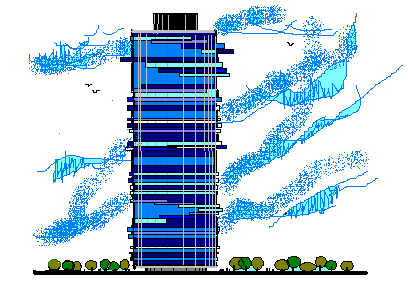|
A Long Term Hold is No Guarantee of Return: Hong Kong Residential
Stephen
Chung Managing Director
Zeppelin
Real Estate Analysis Limited
February 2006
Many people believe that if one hangs on to oneˇ¦s invested assets for a long time despite the ups and downs, one would eventually enjoy the fruits (return, profit) from such assets, be these equities, bonds, or real estate. This may (note underscored) be true but then again there are also numerous cases where long term loyalty to and patience for an asset are not rewarded, or in proper proportion. Perhaps this statement would be truer if humans live indefinitely yet this is not the case; a corporation and its equities may exist for hundreds or even thousands of years thus even the lousiest entities may procure a good profit one day, but homo-sapiens i.e. we humans do not. Hence, timing is important albeit being a very difficult thing to master and practice. To illustrate the point, your humble author has done a simple investigation into the Hong Kong residential sector seeking to find out how one might have done financially if one had invested in a residential home or property from a certain year e.g. 1994, 1995 etc and holding onto it for varying lengths of time e.g. 1 year, 2 years etc, based on Centalineˇ¦s City Center Index (available at this URL http://www.centanet.com/cci_e.htm) noting the following: 1) 1994 is the starting year = this is the earliest year for the said published index 2) The mid-year index value (or start of the 3rd quarter figure) is used = this coincides with the mid-year of 1997 when the index value was set at 100 3) Holding periods = from 1 year to a maximum of 12 years 4) Hong Kong wide averages = the index covers all of Hong Kong and does not differentiate between different districts or properties which actually might have differ 5) No transaction costs or carrying expenses = are factored into the calculations Here are the results and observations (please refer to the chart below): A) Year 2003 brings the best return to date = for investors and home buyers and this was the year when SARS struck Hong Kong hard resulting in hundreds of death. The total percentage return after 1 year in 2004 was some 42% while the total percentage return after 2 years in 2005 was over 70%. On a per annum compound rate basis, these work out to be 42% and 31% respectively.
B) Year 1997 brings the worst scenario to date = not only did investors and home buyers not make a return throughout the years to date, they are still losing out by a total percentage loss of some 44% even today, not to mention the onetime 67% in 2003. Those who bought in 1998 fair a bit better having broken even more or less.
C) Year 1995 and 1996, it depends = offered opportunities to cash out of the properties with a total percentage return ranging from 49% to 75% in 1997 which if missed would led their investors and home buyers to suffer similar consequences as their 1997 counterparts though not to the same extent.
D) Year 2004 is not bad = do well so far with a total percentage return of around 20% but those who bought in 2005 have yet to really make a kill.
E) Year 1999 to 2002, patience should have been used = assume the investors and home buyers held out until now, they would have made a total percentage return anywhere from around 2% via 20% to 40%. Not too bad from such angle but on a compound rate per annum basis, these work out to range from being less than 1% to no more than 12%. Naturally, one can always argue that one cyclical period may not mean much, just as the home price rising trend from the 1980s up till 1997 meant little for the past 12 years since 1994 or for that matter the past 8 years since 1997. Yet and in any event, here are a few deductions: 1) Return (profitability) seems to have little to do with how long an asset has been held = if there is to be any relation, probably it will be a negative one as far as the Hong Kong residential sector since 1994 is concerned.
2) The best returns seem to be connected not only with good timing in acquisition = but also good timing in disposition, else the opportunity may have been lost and a loss can result.
3) The difference in compound rate per annum return performance could be immense = for instance, while a Year 2002 investor could achieve the same / very similar overall percentage return of 42% in 2005 (3 years) as a Year 2003 investor had achieved in 2004 (1 year), the compound rate per annum for the former is around 12% while the latter is 42%.
Notes: The article and/or content contained herein are for general reference only and are not meant to substitute for proper professional advice and/or due diligence. The author(s) and Zeppelin, including its staff, associates, consultants, executives and the like do not accept any responsibility or liability for losses, damages, claims and the like arising out of the use or reference to the content contained herein. |
Phone (852) 37576388 Fax (852) 37576399 E-mail contact@real-estate-tech.com
Address c/o Zeppelin, Unit 1007, 10/F, CCT Telecom Building, 11 Wo Shing Street, Shatin, NT, Hong Kong
Copyright rests with Zeppelin and/or relevant authors

